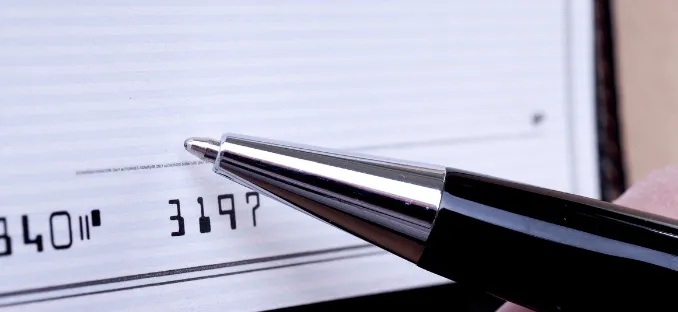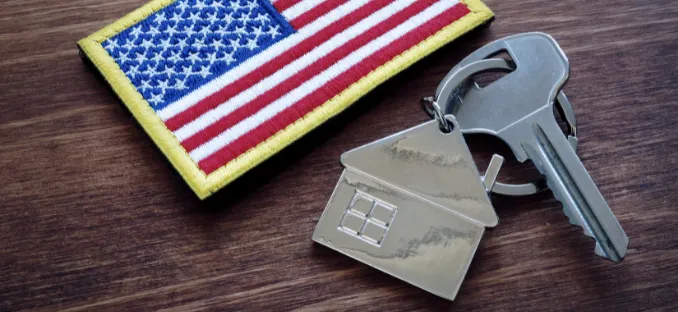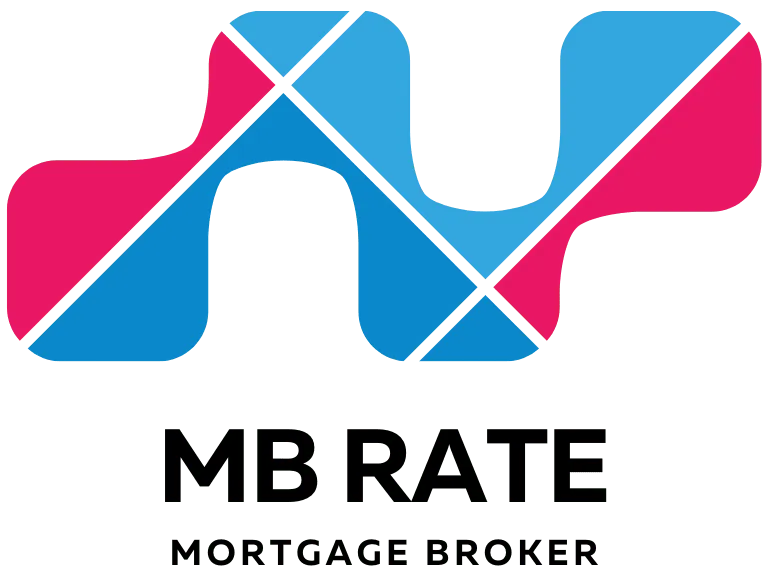
Loan
Programs
Loan Program Options
Construction Loans

We provide 3 types of construction loans:
Construction short term (12-24 month) Builder-Developer
Short term construction loan is the best fit for client who is looking to build the property for sale or does fix and flip activity.
With current market conditions the builder is required to demonstrate finished similar projects in the past. NOTE: The borrower must already have acquired land (It is highly recommended to have free and clear land before you start construction but not required).
Most of the lending institutions are going to lend 65% from ARV after repair value. Appraisal is required.
For this type of loan you need to have at least 25% of equity in land, approved permits, ability to submit clean budget, as your experience as a general contractor matter.
Construction OTC (one time close)
This type of Loan is the best fit for clients who are looking to build home as an owner-occupied property. Please note, you are not allowed to touch the ground by yourself, you only can apply on permits. Borrower and builder must be two different institutions.
This is a combination of construction and perm 30 or 15 year loan where mortgage company is going to finance two types of loan in one.
Requirements are same as conventional loan: 2 year employment, 2 year tax returns, fico score 620+.
Pros:
The loan closes once before construction begins and after construction is over the loan is automatically converted into fully amortized 30 year fixed conventional mortgage. If you own the land free and clear, most of the time you do not need to come up with any closing costs for construction : )
The mortgage company approves the builder making sure general contractor has a license, a W9 form, insurance, building experience and no criminal history in the past. So, you never have to worry losing your money and working with someone not authorized!
Construction Multifamily or Commercial projects
The the best fit for construction on multifamily, hotels, industrial and healthcare properties. Assets, reserves, and experience matters.
This type of loan can be done as conventional or an SBA loan.
Minimum construction project is 5 million and the client is required to have similar accomplished projects in the past with approved permits.
The the best fit for construction on multifamily, hotels, industrial and healthcare properties. Assets, reserves, experience matters.
Please schedule a consultation ahead of applying for permits on this loan.
We are partnered with Quality Builder group LLC for in house new construction, civil engineering, architectural drawings, 3D renderings, design and builder consultation.
Cash-Out Refinance

Ready to pay less in interest on your mortgage and lower your monthly payments? A refinance may be the right step for you.
A mortgage refinance is the replacement of an existing mortgage
with another mortgage under different terms. Mortgage refinancing can lower your monthly payments, which can add up to significant savings.
Knowing your current refinance mortgage rates is important. MB RATE can keep you informed and help decide when a refinance may be best.
Reasons to consider a mortgage refinance:
Reduce your monthly mortgage payment:Mortgage rates are still very low. A refinance with MB RATE may help you lower payment and possibly save you money.Consolidate high interest debt:You could pay off those higher-interest debts by refinancing with a lower rate. Even with less-than-perfect credit, we can help you lower your monthly payment and pay off your higher-interest debt. By consolidating your payments into one low monthly payment, you can pay less each month, lower your debt, and improve your credit
score.Pay Off Your Mortgage Faster:The shorter the term on your mortgage, the lower your mortgage rate. Did you know that you may be able to take advantage of today’s competitive rates by shortening the term of your loan (which means paying less interest) without a significant change in your monthly payment?
When to Refinance Your Mortgage?
We offer information on a variety of mortgage refinancing rates and options. When you are ready to take the next step, contact MB RATE. We can advise you on which mortgage refinancing program meets your needs.
Jumbo Loans

A jumbo loan is a mortgage used to finance properties that are too expensive for a conventional conforming loan. The maximum amount for a conforming loan is $548,250 in most counties, as determined by the Federal Housing Finance Agency (FHFA). Homes that exceed the local conforming loan limit require a jumbo loan.
Also called non-conforming conventional mortgages, jumbo loans are considered riskier for lenders because these loans can’t be guaranteed by Fannie and Freddie, meaning the lender is not protected from losses if a borrower defaults. Jumbo loans are typically available with either a fixed interest rate or an adjustable rate, and they come with a variety of terms.
Refinance Mortgage Loans

Ready to pay less in interest on your mortgage and lower your monthly payments? A refinance may be the right step for you.
A mortgage refinance is the replacement of an existing mortgage
with another mortgage under different terms. Mortgage refinancing can lower your monthly payments, which can add up to significant savings.
Knowing your current
refinance mortgage rates is important. MB RATE can keep you informed and help decide when a refinance may be best.
Reasons to consider a mortgage refinance:
Reduce your monthly mortgage payment:Mortgage rates are still very low. A refinance with MB RATE may help you lower payment and possibly save you money.Consolidate high interest debt:You could pay off those higher-interest debts by refinancing with a lower rate. Even with less-than-perfect credit, we can help you lower your monthly payment and pay off your higher-interest debt. By consolidating your payments into one low monthly payment, you can pay less each month, lower your debt, and improve your credit
score.Pay
Off Your Mortgage Faster:The shorter the term on your mortgage, the lower your mortgage rate. Did you know that you may be able to take advantage of today’s competitive rates by shortening the term of your loan (which means paying less interest) without a significant change in your monthly payment?
When to Refinance Your Mortgage?
We offer information on a variety of mortgage refinancing rates and options. When you are ready to take the next step, contact MB RATE. We can advise you on which mortgage refinancing program meets your needs.
FHA Mortgage Loans

In 1934, the Federal Housing Administration (FHA) was established to improve housing standards and to provide an adequate home financing system with mortgage insurance. Now families that may have otherwise been excluded from the housing market could finally buy their dream home.
FHA does not make home loans, it insures a loan; should a homebuyer default, the lender is paid from the insurance fund.
Buy a house with as little as 3.5% down.
Ideal for the first-time homebuyers unable to make larger down payments.
The right mortgage solution for those who may not qualify for a conventional loan.
Down payment assistance programs can be added to a FHA Loan for additional down payment and/or closing cost savings.
Reverse Mortgage Loans

A reverse mortgage is a type of home equity loan that allows you to convert some of the existing equity in your home into cash while you retain ownership of the property. Equity is the current cash value of a home minus the current loan balance.
A reverse mortgage works much like a traditional mortgage, except in reverse. Instead of the homeowner paying the lender each month, the lender pays the homeowner. As long as the homeowner continues to live in the home, no repayment of principal, interest, or servicing fees are required. The funds received from a reverse mortgage may be used for anything, including housing expenses, taxes, insurance, fuel or maintenance costs.
To qualify for a reverse mortgage, you must own your home. You may choose to receive the reverse mortgage funds in a lump sum, monthly advances, as a line-of-credit, or a combination of the three, depending on the reverse mortgage type and the lender. The amount of money you are eligible to borrow depends on your age, the amount of equity in your home, and the interest rate set by the lender.
Because the borrower retains ownership of the home with a reverse mortgage, the borrower also continues to be responsible for taxes, repairs and maintenance.
Depending on the plan selected, a reverse mortgage is due with interest either when the homeowner permanently moves, sells the home, dies, or the end of a pre-selected loan term is reached. If the homeowner dies, the lender does not take ownership of the home. Instead, the heirs must pay off the loan, typically by refinancing the loan into a forward mortgage (if the heirs meet eligibility requirements) or by using the proceeds generated by the sale of the home.
VA Mortgage Loans

As a benefit of your service, the Department of Veterans Affairs offers unique resources to help those with military experience purchase a home with a low or zero down payment. VA Loans offer flexible options as either Fixed Rate or Adjustable Rate mortgages.
VA loans are available and provide the buyer the chance to finance 100% of the purchase price of the home. This means no down payment is required. It is important to note that buyers will still need to qualify for the loan. This means that lenders will look at their credit and ability to pay the mortgage. If you are in a troubling financial position, a lender may want to see you pay down debt or save up money before they are willing to give you the loan.
You may also be responsible for closing costs, such as recording the title or paying lawyers to draw up all paperwork. This is negotiable with the seller and something to discuss with your realtor before making an offer on a home.
The VA Loan process
A VA loan works the same as most other home purchases, with a buyer making a written offer to purchase a home under specific conditions (price, closing cost assistance, other contingencies), and then going through an approval process with a lender. The key difference with a VA loan is that the Department of Veterans Affairs requires that all homes purchased through this program meet certain habitability requirements. They will send out a home inspector and appraiser to make sure that the home is in good working order and is worth what you are paying.
This step may sometimes cause delays, especially if repairs are needed after the inspector looks around. Issues at the home do not necessarily mean that the buyer cannot use the VA loan, just that repairs will need to be done before the home purchase can be completed. The VA recently started offering a VA loan to be used for homes that need renovation on a limited basis.
How VA Loans Work
Purchase your home with as little as 0% down payment.
30-, 25-, 20- and 15-year terms are all available with fixed rates.
5-year adjustable rate mortgage available.
Jumbo VA loans available.
VA Streamline Refinance with a reduced funding fee and flexible documentation requirements – available for veterans currently in VA loans.
No monthly PMI (Private Mortgage Insurance).
VA loans are governed by the U.S. Department of Veterans Affairs.
Pay your mortgage off at any time without pre-payment penalties.
USDA Loans

USDA Loans offer flexible options as either Fixed Rate or Adjustable Rate mortgages. You may qualify with less than perfect credit. Buying a home with little or no down payment can provide opportunities for buyers that otherwise may not be able to become homeowners. Fortunately for today’s buyers, there are a few programs that can help them qualify for a mortgage with a very small down payment. One that is not widely discussed is the USDA Single Family Housing Guaranteed Loan Program.
What is a USDA home loan?
The United States Department of Agriculture, USDA, administers the program but does not actually loan money. Similar to loans backed by the Department of Veterans Affairs, VA, or Federal Housing Administration, FHA, these loans are guaranteed by the USDA. Private lenders, such as banks or credit unions, still loan money to the home buyer but they know that the USDA will pay if the borrower is unable.
This allows lenders to assume less risk, and as a result they are okay requiring less money down.
Who can use the USDA program?
Contrary to its name, the USDA loan is not only available for those in an agricultural setting. The USDA loan is designed to help “low and moderate income households the opportunity to own adequate, modest, decent, safe and sanitary dwellings as their primary residence in eligible rural areas.”
To use the USDA loan, applicants must meet income requirements and be purchasing a home for their own primary use in an eligible area. Potential homeowners can look up each property’s address to see if it qualifies or talk to a lender about using a USDA loan in their area. The loan can be used for new homes, existing homes, and even homes that need some renovations.
If coming up with a sizable down payment is holding you back from your dreams of home ownership, the USDA loan may be just the answer you are looking for.
How USDA Loans Work
Purchase your home with as little as 0% down payment.30-, 25-, 20- and 15-year terms are all available with fixed rates.5-year adjustable rate mortgage
available. No
monthly PMI (Private Mortgage Insurance).USDA loans are governed by the U.S. Department of
Agriculture. Pay
your mortgage off at any time without pre-payment penalties.
Qualification Requirements
Household income limits apply and are based on location. Only available in certain areas. Talk to a specialist today to see if it is an option for you! Buy a home with no money down (primary home). Refinance up to 100% of your primary home’s value.
Adjustable Rate Mortgages (ARM)

Hybrid ARM mortgages, also called fixed-period ARMs, combine features of both fixed-rate and adjustable-rate mortgages. A hybrid loan starts out with an interest rate that is fixed for a period of years (usually 3, 5, 7 or 10). Then, the loan converts to an ARM for a set number of years. An example would be a 30-year hybrid with a fixed rate for seven years and an adjustable rate for 23 years.
The beauty of a fixed-period ARM is that the initial interest rate for the fixed period of the loan is lower than the rate would be on a mortgage that's fixed for 30 years, sometimes significantly. Hence you can enjoy a lower rate while having period of stability for your payments. A typical one-year ARM on the other hand, goes to a new rate every year, starting 12 months after the loan is taken out. So while the starting rate on ARMs is considerably lower than on a standard mortgage, they carry the risk of future hikes.
Homeowners can get a hybrid and hope to refinance as the initial term expires. These types of loans are best for people who do not intend to live long in their homes. By getting a lower rate and lower monthly payments than with a 30- or 15-year loan, they can break even more quickly on refinancing costs, such as title insurance and the appraisal fee. Since the monthly payment will be lower, borrowers can make extra payments and pay off the loan early, saving thousands during the years they have the loan.
Foreign Buyers

Are you considering purchasing a property in the United States? Whether it’s for vacation or investment, MBRate will help you understand the mortgage process, what opportunities there are for foreign investors and what lenders look for when dealing with foreign buyers.
Conventional Fixed Rate Mortgages

The traditional fixed rate mortgage is the most common type of loan program, where monthly principal and interest payments never change during the life of the loan. Fixed rate mortgages are available in terms ranging from 10 to 30 years and in most cases can be paid off at any time without penalty. This type of mortgage is structured, or "amortized" so that it will be completely paid off by the end of the loan term.
Even though you have a fixed rate mortgage, your monthly payment may vary if you have an "impound account". In addition to the monthly "principal + interest" and any mortgage insurance premium (amount charged to homebuyers who put less than 20% cash down when purchasing their home), some lenders collect additional money each month for the prorated monthly cost of property taxes and homeowners insurance. The extra money is put in an impound account by the lender who uses it to pay the borrowers' property taxes and homeowners insurance premium when they are due. If either the property tax or the insurance happens to change, the borrower's monthly payment will be adjusted accordingly. However, the overall payments in a fixed rate mortgage are very stable and predictable.
Interest Only Mortgages

A mortgage is called “Interest Only” when its monthly payment does not include the repayment of principal for a certain period of time. Interest Only loans are offered on fixed rate or adjustable rate mortgages as wells as on option ARMs. At the end of the interest only period, the loan becomes fully amortized, thus resulting in greatly increased monthly payments. The new payment will be larger than it would have been if it had been fully amortizing from the beginning. The longer the interest only period, the larger the new payment will be when the interest only period ends.
You won't build equity during the interest-only term, but it could help you close on the home you want instead of settling for the home you can afford.
Since you'll be qualified based on the interest-only payment and will likely refinance before the interest-only term expires anyway, it could be a way to effectively lease your dream home now and invest the principal portion of your payment elsewhere while realizing the tax advantages and appreciation that accompany homeownership.
As an example, if you borrow $250,000 at 6 percent, using a 30-year fixed-rate mortgage, your monthly payment would be $1,499. On the other hand, if you borrowed $250,000 at 6 percent, using a 30-year mortgage with a 5-year interest only payment plan, your monthly payment initially would be $1,250. This saves you $249 per month or $2,987 a year. However, when you reach year six, your monthly payments will jump to $1,611, or $361 more per month. Hopefully, your income will have jumped accordingly to support the higher payments or you have refinanced your loan by that time.
Mortgages with interest only payment options may save you money in the short-run, but they actually cost more over the 30-year term of the loan. However, most borrowers repay their mortgages well before the end of the full 30-year loan term.
Borrowers with sporadic incomes can benefit from interest-only mortgages. This is particularly the case if the mortgage is one that permits the borrower to pay more than interest-only. In this case, the borrower can pay interest-only during lean times and use bonuses or income spurts to pay down the principal.
Investment Property Loans

Mortgage Loan Programs for Vacation and Investment Homes
30-Year Loan
Take advantage of low rates by locking into a low payment with a traditional 30-year loan.
You may be able to qualify for owner-occupied financing with lower interest rates, based on your use of the home. Talk to a loan specialist to find out what programs offer the best terms for your situation.
15-Year Loan
Get the same security of a 30-year fixed rate mortgage, but pay your mortgage off in half the time. This means paying less in interest and owning your home sooner! This translates to greater monthly income from your investment.
Get Pre-Qualified
Great investment properties are out there but are often purchased by buyers “in the know” quickly. Increase your bargaining power by getting pre-qualified with us today.


About Maryna
Senior Mortgage consultant
For me, there’s no higher priority than achieving client satisfaction. I work diligently towards providing the real estate financing solutions my clients need based on their unique financial situations and lifestyle preferences. Check out some of my specialized services below to learn more.
I specialize in a variety of mortgage services aimed at helping to secure all of your property-financing needs. Whether you’re looking to buy your first home or refinance an existing mortgage, I provide an array of services suited to each client’s individual needs. Feel free to contact me to see how I can be of assistance to you.
Contact Info
Address:
19800 MacArthur Blvd, suite 300
Irvine, CA 92612
(877) 731-7903
maryna@mbrate.com


Company NMLS: 2431879
© Copyright 2023. MBRate. All rights reserved